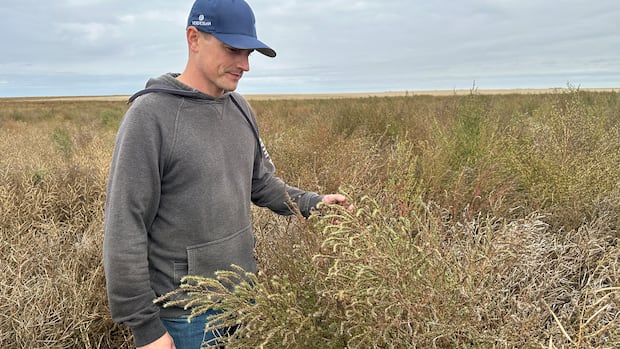Lytton, B.C., is upholding its reputation as Canada’s hot spot, recording the highest temperature across the country so far this year amid an ongoing heat wave that is scorching much of the province.
Environment Canada figures show the mercury hit 41.3 C on Monday in the Fraser Canyon community, marking the hottest temperature of 2025 in Canada.
Lytton also set a daily maximum temperature record for Aug. 25, surpassing the previous record of 37.2 C set in 1934.
Lytton was among 16 areas of B.C. that set new daily maximum records the same day, including Whistler, Pemberton, Kamloops, Kelowna and Cache Creek.
The temperature hit 38.8 C in Cache Creek, surpassing the previous record of 37.1 in 2022, while the high of 38.5 C in Lillooet broke the record of 37.3 set in the same year.
Environment Canada is maintaining heat warnings for several areas, including the Fraser Canyon and southern parts of the Thompson and Okanagan regions, where daily highs reaching 35 to 39 C are forecast until the end of the week.
Matt Loney, a meteorologist with the department, says the heat is expected to ease on Friday as cooler marine air arrives along the coast and trickles into the Interior, though the first week of September is expected to be hotter than normal.
A heat warning is also in effect for inland sections of the north and central coasts, while a heat-related special weather statement covers much of Vancouver Island.
In 2021, Lytton set the record for Canada’s hottest temperature of 49.6 C. The next day, a fire destroyed most of the village.
Loney says the ridge of high pressure that has brought late-season heat to B.C. may “cut off” the cooler system expected to move over the province.
“It’s going to be kind of a standoff,” he said.
“The computer models are suggesting that the upper ridge might win out and actually be able to stall the upper low and even send it back retrograding westward.”
Loney says that means parts of B.C. may see a warmer first week of September with less rain than normal, but the forecast becomes less clear after that.
Temps declining as fall approaches: forecaster
Overall, temperatures are declining as fall approaches, he says.
“Generally speaking, they’re on their downward trend. But as we’ve seen, you can still hit 40 degrees this late in the year.”
The number of wildfires across B.C. has been holding steady at about 70, while the B.C. Wildfire Service has warned that the hot, dry conditions would raise the fire risk.
The service’s figures show seven fires are classified as burning out of control, including the Sailor Bar fire in the Fraser Canyon.
It had been mapped at 120 hectares, but the service updated the size of the blaze to 111 hectares on Tuesday.
The service says crews saw “minimal” growth overnight, and today’s operational focus would be working with CN Rail to access areas at the top of the blaze.
Evacuation alerts for the Yale and Spuzzum areas remain in effect due to the fire.






